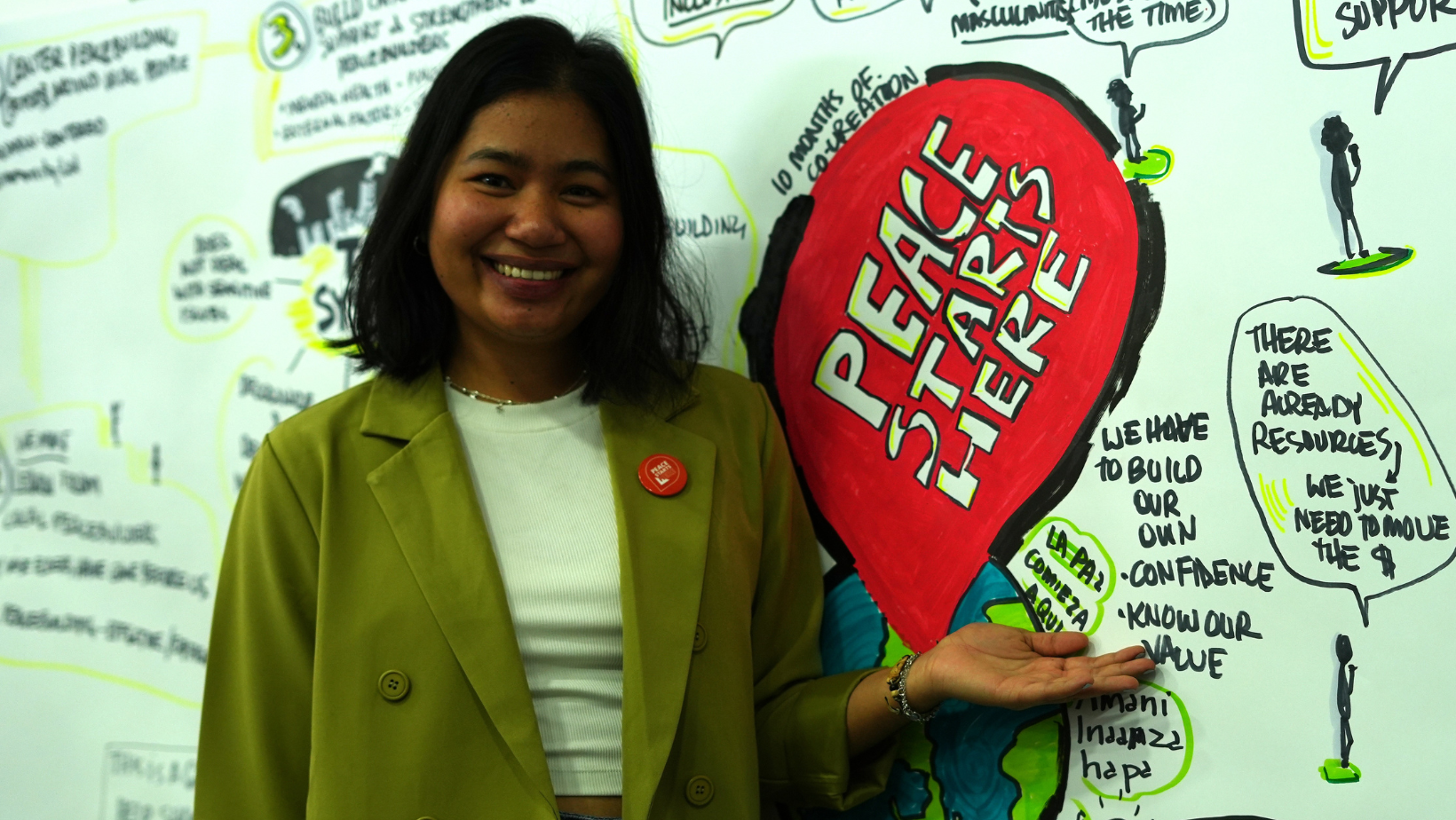Engaging in peacebuilding work often feels like navigating an uncharted path, and the journey can sometimes be isolating. Despite our unwavering commitment to our communities, we were longing for connection with fellow peacebuilders who share our passion and challenges.
When we were informed that we, the co-creators, would have the opportunity of meeting one another physically, we hardly imagined it could happen. At that point, we had worked together for over a year: meeting online every Thursday, each of us connecting from our own corner of the world and collaborating on a shared campaign. As reality set in, we were eager to start preparing for the Summit and the connections we were about to make. We’d be attending as local peacebuilders, but also as Peace Starts Here campaign co-creators. The Summit was about to be the first space where we shared about the campaign publicly. The excitement and the enthusiasm we had kept to ourselves about the campaign could finally be shared with the rest of the participants, so we hoped they were as excited as we were.

Preparing to attend the Summit, we were avid to learn from the space, from the sessions and from the connections we’d make. Our aspirations were to use the space and elevate the voices of our communities onto a global arena and to absorb the collective wisdom of fellow peacebuilders from diverse corners of the world. We aimed to build a network of kindred spirits in peacebuilding, breaking free from geographical and religious confines.
At the Summit, we met people from the entire global development sector– people from organisations we’ve long been hearing about. People we perceive as ‘shakers and movers’ in the development sector. ‘Shakers and movers’ because they determine and sometimes dictate the direction of development focus, issues and activities around the world. Most of them control the funding, so we relate them with the saying: ‘he who pays the piper calls the tune’.
We synthesised the essence of ‘Shift The Power’ with our campaign’s vision, particularly with the 4th ask in our Peacebuilders’ Manifesto: Centre peacebuilding around local people. We knew that as local peacebuilders co-creating the Peace Starts Here campaign, we are part of the movement campaigning for decolonizing peacebuilding and philanthropy.
Another fascinating occurrence at the Summit was that as local peacebuilders, we were sitting at the same tables with these people. It dawned on us that we are some of the people contributing efforts that keep development sector going.
We are highly needed by both these people on the table of conversations and the local communities we serve back home to make visions work. We feel essential and important in the chain of global development efforts. Even when local development workers such as local peacebuilders seem unrecognized, our contributions from the local perspective fuel discussions and happenings at this global level event. We felt connected to the wider missions of global development. What’s more? They listened to us when we spoke, they appreciated our contributions, and appreciated the work we do in effecting change in our own ways at our local communities.
Participating in international spaces such as the Shift the Power Summit has not only allowed local peacebuilders to share their narratives but also serves as a means to increase visibility of our work and garner international solidarity for our local efforts. We are more and more convinced that sustainable grassroots efforts require coordinated international support.
Local peacebuilders, while committed, cannot operate alone; they require resources, networks, support, and access to information to navigate their work’s complexities effectively.
As we reflect on this transformative experience, we carry with us the hope that the bonds formed at the summit will last, creating a support system that transcends distance and background. It was a collaborative effort and Shift the Power Summit has illuminated the path forward, reassuring our deep conviction that the map lays in the hands of local peacebuilders.
By Le Sen, Nishchhal Kharal and Celine Osukwu.
